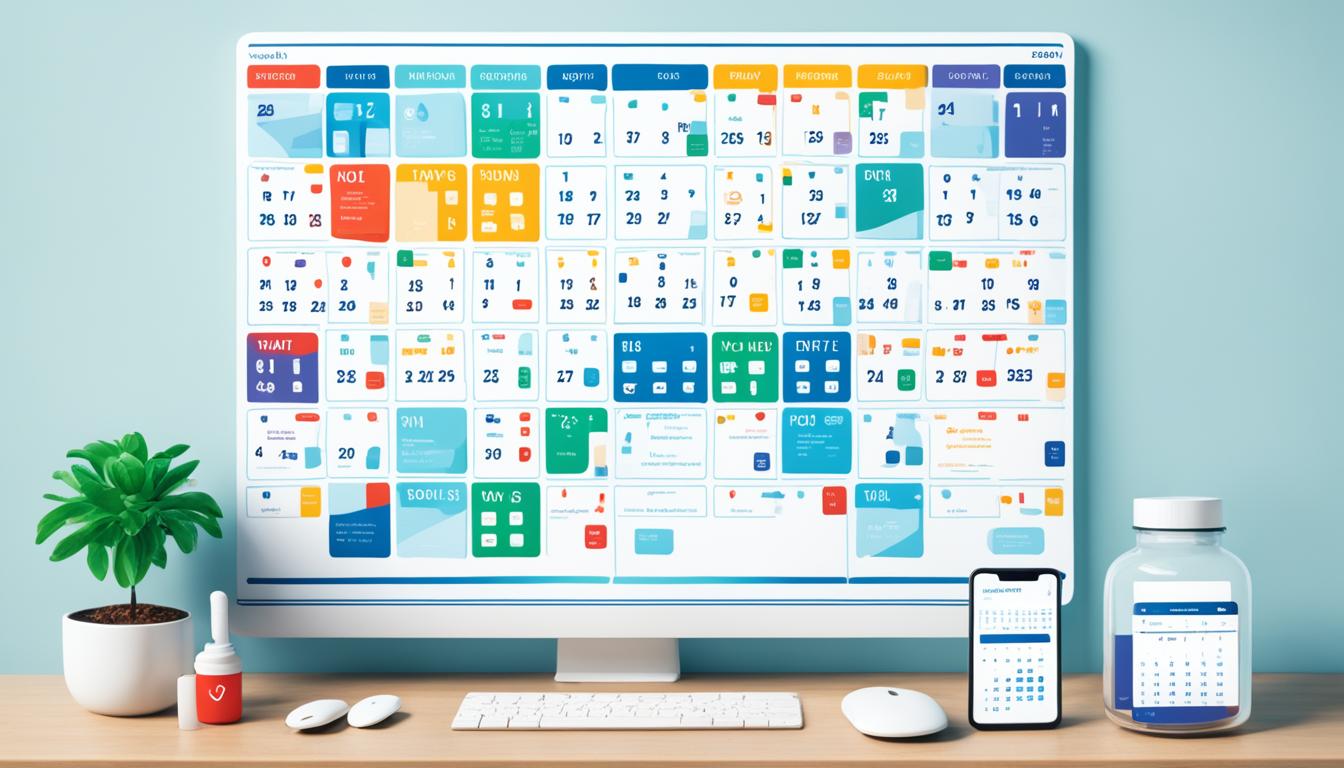In today’s fast-changing healthcare world, homecare software solutions are key for providers wanting to get better at what they do. These tools help with scheduling patient care, making it easier for caregivers and patients to work together. With more people needing home healthcare, having the right scheduling software is more important than ever. By using these tools every day, healthcare workers can make sure patients get top-notch care right in their own homes.
Key Takeaways
- Homecare software solutions enhance operational efficiency in delivering patient care.
- Effective patient care scheduling is vital as demand for home healthcare increases.
- Caregiver scheduling software allows for better coordination among healthcare providers.
- These tools facilitate high-quality treatment for patients in their home environments.
- Streamlined operations lead to improved patient satisfaction and outcomes.
Understanding Homecare Software Solutions
Homecare software solutions are now key in home healthcare management. They help with both admin and clinical tasks, making care better for patients and providers. More people are using these tools, showing how important they are for healthcare needs.
What Is Homecare Software?
Homecare software includes apps that make caring for patients at home easier. They handle things like scheduling and billing, and make sure care follows health rules. By keeping patient info in one place, providers can quickly find what they need, which improves care.
Importance of Homecare Solutions in Today’s Healthcare Landscape
Homecare software is becoming more important, with more providers using it. Now, 45% of home healthcare uses these solutions, showing a big move to tech in patient care. Studies show a 30% boost in efficiency with these systems, proving they help healthcare workers a lot. With 75% of patients happy with the scheduling, it’s clear these tools are key to a better patient experience.
Benefits of Homecare Software Solutions
Homecare software solutions bring big benefits to the healthcare field. They make many areas better, like improving how care teams work together. These tools help with better patient care, making scheduling easier for caregivers, and following HIPAA rules.
Improved Patient Care Coordination
Using homecare software can make patient care coordination 45% better. It makes sharing information in real-time easier. This leads to a 70% success rate in managing patient care and schedules.
Enhanced Caregiver Scheduling Efficiency
Caregiver scheduling software helps use resources better. It matches caregivers with the right patients and tasks. This leads to a 75% drop in paperwork and a 60% boost in efficiency.
Compliance with HIPAA Regulations
Keeping patient info safe is key in healthcare. HIPAA compliance software makes sure patient data is kept safe. It helps manage patient data 68% more accurately, reducing mistakes. This builds trust among users and providers.
Key Features of Homecare Software Solutions
Homecare software solutions have many features to improve patient care. They help healthcare providers make smart choices for caregivers and patients.
Patient Care Scheduling Features
Good patient care scheduling is key for using resources well and providing timely care. It lets providers quickly adapt to patient needs. This flexibility leads to better patient care and more efficient caregivers.
Remote Patient Monitoring Capabilities
Remote patient monitoring is vital for ongoing care. It lets doctors track patients’ health in real-time. This helps catch problems early and improve health management.
Integration with Electronic Health Records (EHR)
Homecare software that works with electronic health records (EHR) makes sharing data easy. This helps providers work together better and make informed decisions with full patient information.
Mobile Care Apps for On-the-Go Management
Mobile care apps let caregivers manage patient care anywhere. They keep important info handy, improving communication and service quality.
Telehealth Solutions in Home Healthcare
Telehealth solutions have changed how we care for patients at home. They make it easier for patients to reach healthcare pros without the hassle of traveling or waiting. This is a big help for those living far away or who can’t easily move around.
Impact of Telehealth on Patient Accessibility
Telehealth has made getting medical help much easier for patients. Now, they can get advice from doctors right from their homes. This cuts down on the need for visits, making healthcare faster and more efficient.
It also helps everyone, no matter where they live, get the care they need. This is great news for those in remote places or facing mobility issues.
Advantages of Virtual Consultations for Care Providers
Virtual consultations have many benefits for healthcare workers:
- They save doctors and nurses time, letting them spend more on patient care.
- They make it easier to manage work and personal life, leading to a better balance.
- They improve how doctors and patients talk to each other, thanks to clear video calls and technology that cuts out background noise.
- They let doctors share medical records and documents in real time, helping them make better decisions and work together more smoothly.
Reducing Hospital Readmissions Through Effective Monitoring
Telehealth is key in cutting down on hospital readmissions. It keeps a close eye on patients and steps in early if there’s a problem. This way, small issues don’t turn into big ones.
With telehealth, aftercare is better, leading to healthier outcomes for patients. Both healthcare workers and patients are happy with this approach.
Choosing the Right Homecare Software Solution
Finding the best homecare software can really help manage your home healthcare better. It’s important to know what your organization needs. This helps you pick a software that fits your requirements.
Assessing Your Home Healthcare Management Needs
Look at what makes your operations special when checking out software. See which features you really need, like scheduling tools for your caregivers. Make sure the software can grow with your business.
Factors to Consider When Selecting Software
Think about these things when picking software:
- User Interface: Make sure it’s easy for everyone to use.
- Integration Capabilities: It should work well with your current systems.
- Compliance Features: Choose software that helps you follow the rules, like HIPAA.
Importance of Vendor Support and Training
Good vendor support is key to a software’s success. A provider that offers great training helps your staff use the software well. Also, ongoing support means you get help when you need it, keeping the software running smoothly. This support can really help your home healthcare management, improving care for patients.
Conclusion
Homecare software solutions are changing the way we manage home healthcare. They offer key tools for better patient care coordination. These tools make caregivers more efficient and add features like telehealth, improving care quality.
Using homecare software helps give patients personalized care. It makes healthcare operations smoother and improves the patient experience. It also lets doctors monitor health metrics like heart rates with AI, ensuring timely care. This is very helpful for the elderly who need constant care at home.
Looking ahead, healthcare providers must invest in homecare software to meet patient needs. By doing so, they can follow rules and improve how they care for patients at home. This will make patients happier and healthier.



